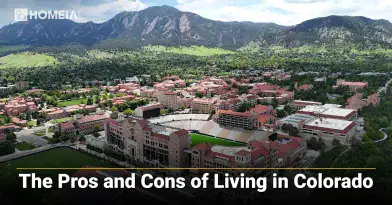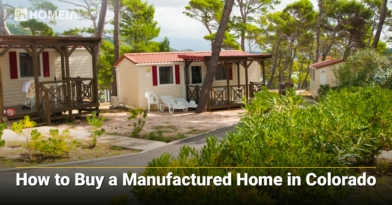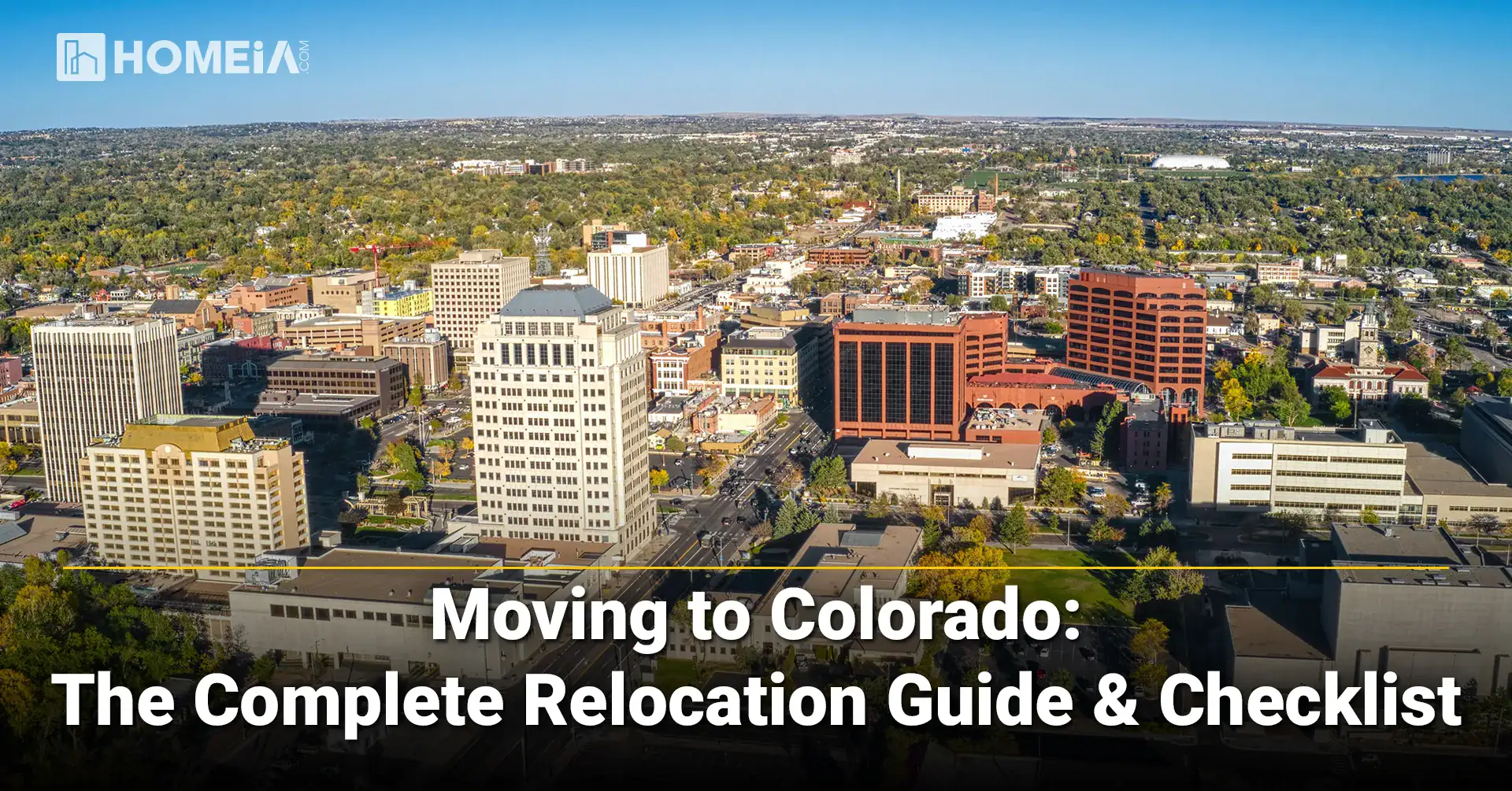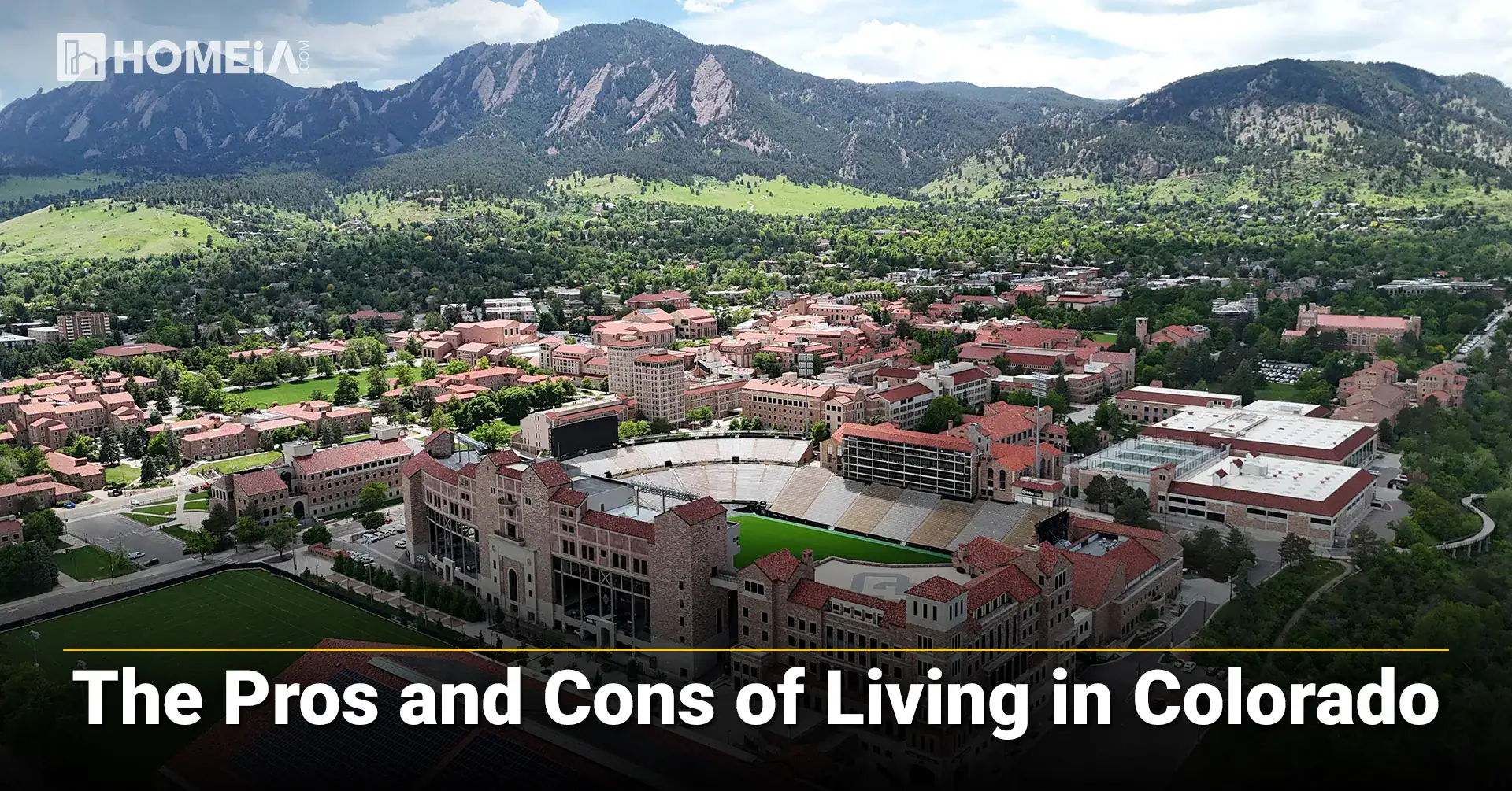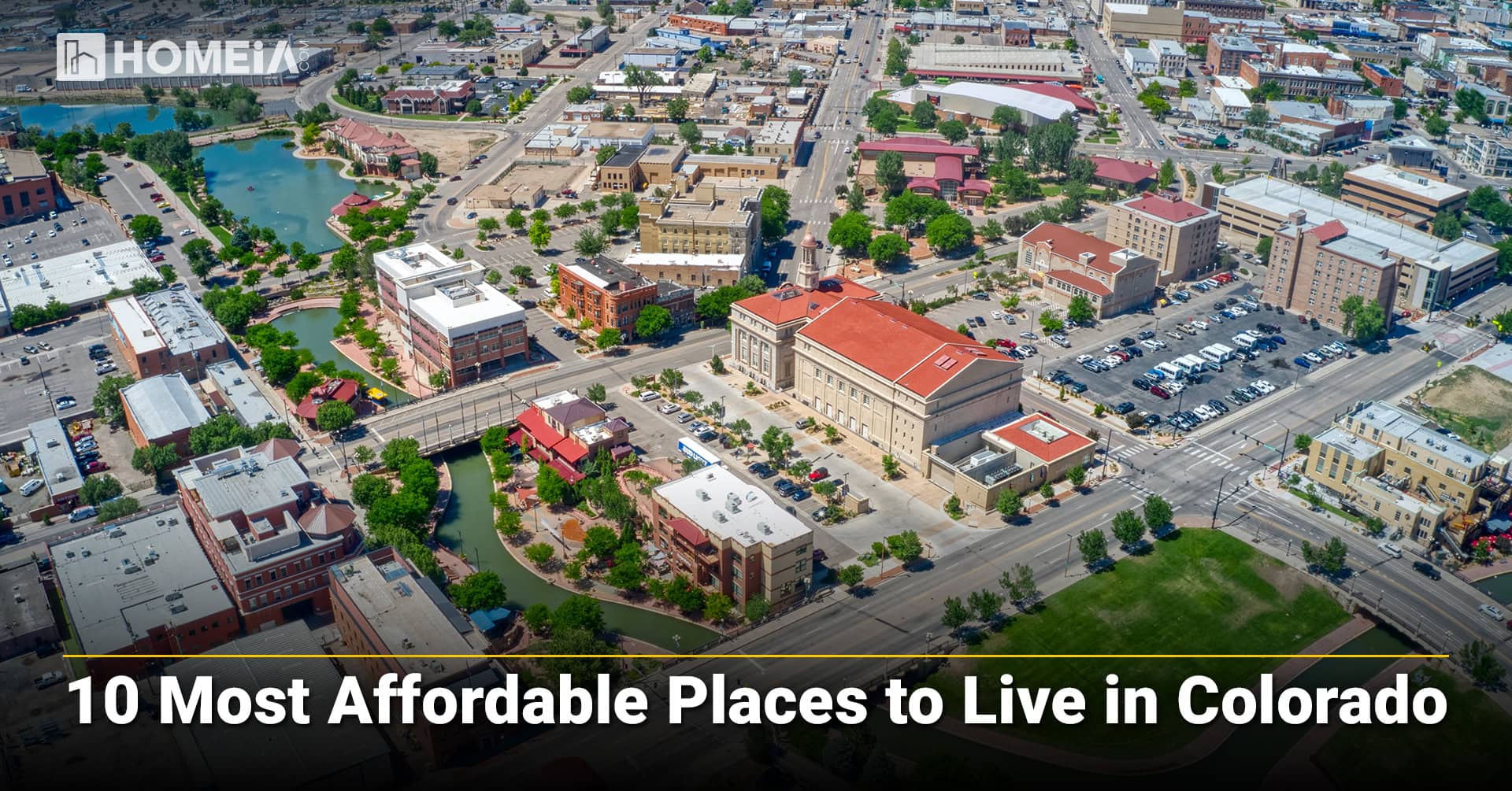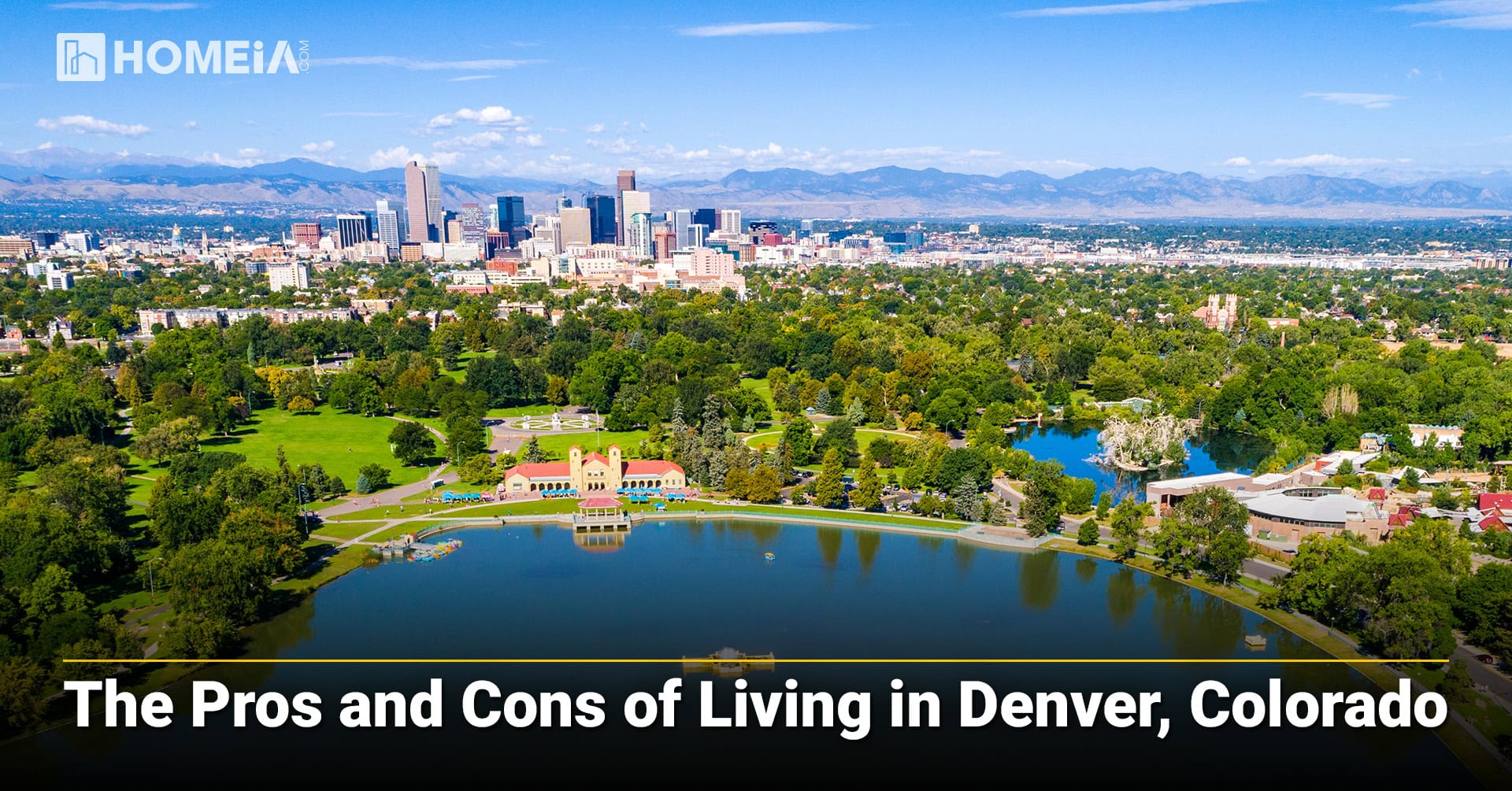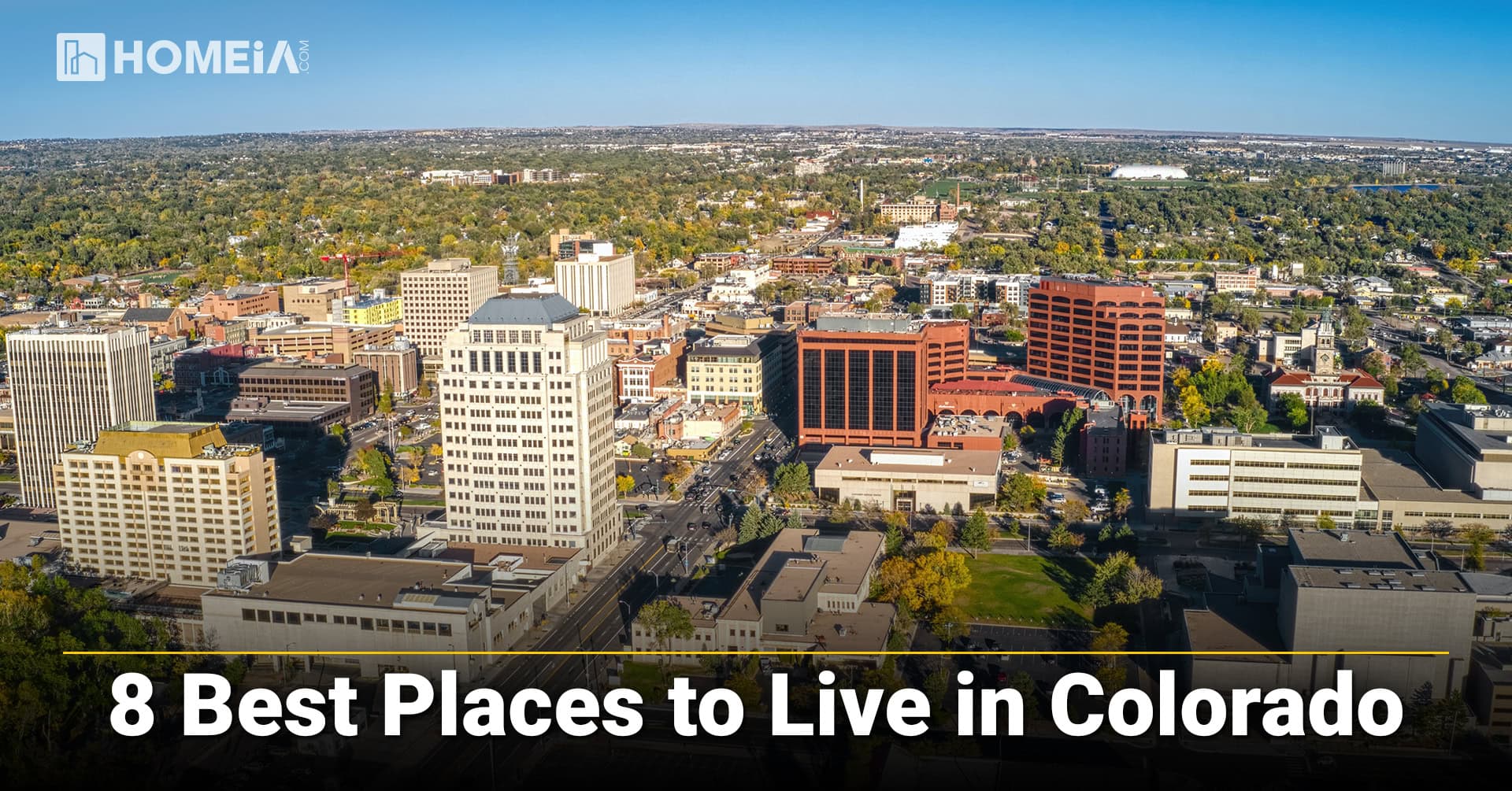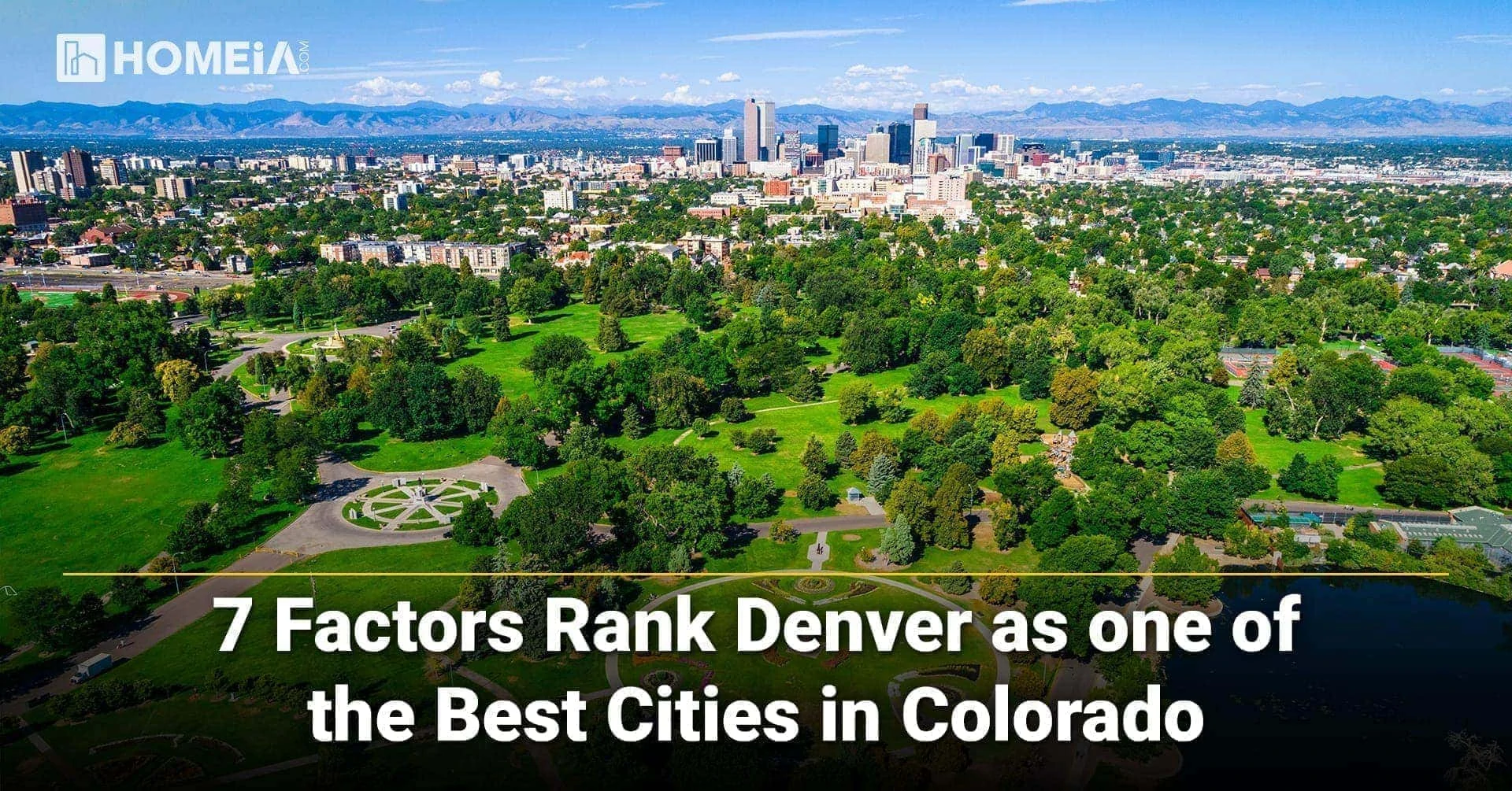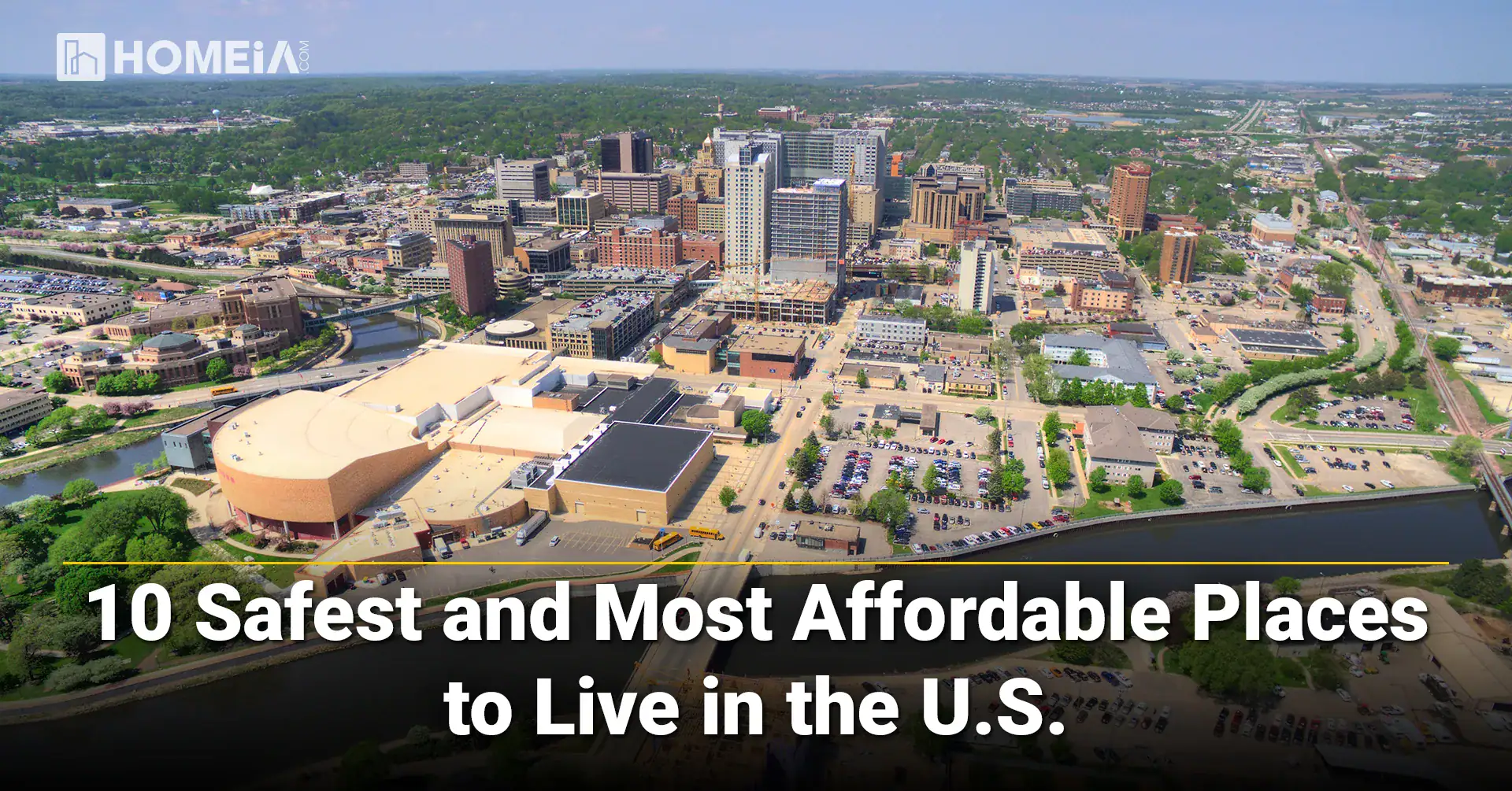Living in Colorado
Local Editor(s)
Table of Contents:
- THE Complete Relocation Guide and Checklist
- HOMEiA Score: Our Methodology
- Why Choose Colorado for Your Next Adventure?
- 1. What Is It Really Like to Live in Colorado?
- 2. Cost of Living and Affordability in Colorado
- 3. Jobs, Economy and Career Opportunities
- 4. Education Excellence in Colorado
- 5. Colorado Tax Structure
- 6. Best Places to Live in Colorado: Comprehensive City Guide
- 7. Planning Your Colorado Move: Step-by-Step Timeline
- => Get the Relocation Guide & Checklist PDF — prepared for both Desktop and Mobile devices.
- 9. Colorado’s Unique Rules and Requirements
- 10. Financial Planning and Budget Adjustment
- Frequently Asked Questions about Living in Colorado
THE Complete Relocation Guide and Checklist
Hey there! Thinking about making the move to Colorado? In Colorful Colorado, the sun shines year-round, and you’re surrounded by a diverse culture and breathtaking scenery. I’ve lived here half my life, and I can tell you that Colorado is a special place. We have a choose-your-own-adventure lifestyle here. You can be a city person, a mountain person or a combination of both. Whether you’re drawn by our outdoor-geared lifestyle, our diverse economy or our family-friendly (and dog-friendly) culture, you’ll find plenty to love in Colorado.
This comprehensive Colorado moving guide is your one-stop resource for everything you need to know before you relocate—from a cost-of-living breakdown and job market analysis to the best places to live and how to settle in. Whether you’re dreaming of Denver’s urban energy, Boulder’s tech hub culture or the mountain lifestyle of Aspen and Vail, this guide will help you make an informed decision about your Colorado relocation.
HOMEiA Score: Our Methodology
Our Methodologies to create HOMEiA Score Ratings for Each Group of Content
HOMEiA uses a consistent, data-driven methodology to evaluate U.S. states for livability, affordability, and long-term value. Our analysis centers on key factors such as Housing and Affordability, Cost of Daily Living, Access and Infrastructure, Community Strength, Safety and Quality of Life, Economic Resilience and Job Market…
Why Choose Colorado for Your Next Adventure?
Colorado consistently ranks among America’s most desirable states, attracting over 56,000 new residents annually who are drawn by our beautiful weather, outdoor lifestyle and strong job market. The state is irresistible to relocators due to our business-friendly environment, relatively low property taxes, diverse job market spanning technology to healthcare and central location providing access to both coasts. From Vail and Aspen to Denver and Boulder, Colorado offers a unique blend of adventure, culture and opportunity.
Mission Table: How This Guide Helps You Relocate to Colorado
Mission Area | How This Guide Helps You |
|---|---|
| Research and planning | Gives you the inside scoop on Colorado cities, Front Range living costs, neighborhoods and what to expect in your first year |
| Financial preparation | Helps you budget for the Colorado cost of living and get your finances ready for Centennial State living |
| Legal and documentation | Walks you through Colorado residency requirements, vehicle registration and essential paperwork |
| Community integration | Offers tips for making friends, finding local resources and feeling at home in your new community |
| Ongoing support | Answers your relocation questions and provides comprehensive checklists for every step of your move |
1. What Is It Really Like to Live in Colorado?
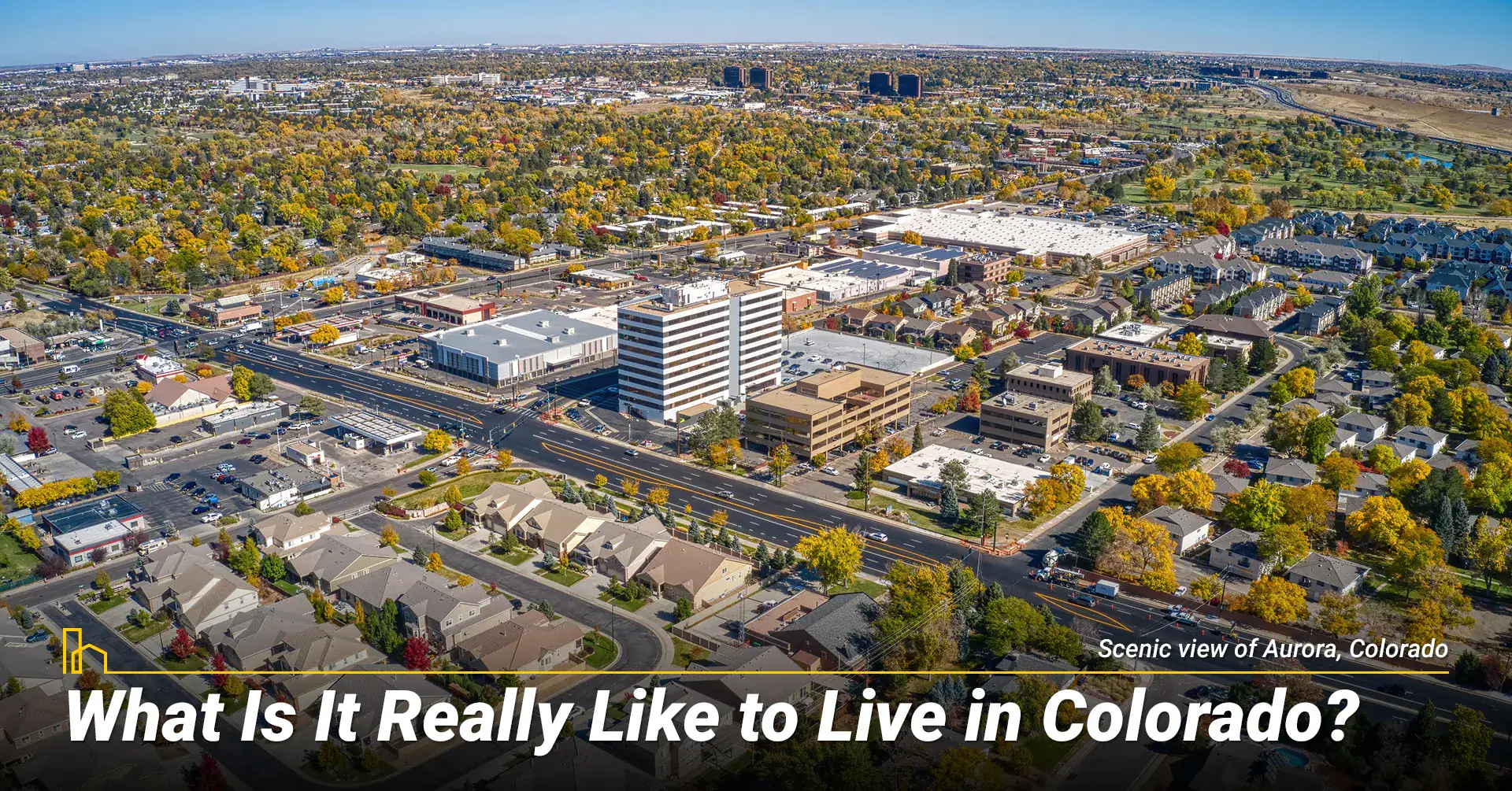
A. Colorado Culture and Lifestyle
Living in Colorado means experiencing a unique blend of Rocky Mountain traditions, outdoor adventure culture and modern innovation. Whether you’re in downtown Denver, the college town of Fort Collins or Aspen’s mountain community, you’ll find neighbors who look out for each other and maintain connections rooted in outdoor traditions.
Colorado’s culture reflects diverse influences from Native American heritage, centuries-old Hispanic traditions, mining boom history and outdoor enthusiasts who’ve shaped our adventure-focused spirit. You’ll discover everything from historic neighborhoods like LoDo and the Arts District on Sante Fe to bustling tech corridors. The Centennial State embodies a striking dichotomy of the modern American West: its rugged Rocky Mountains sharply contrast with the trendy, urban heart of the Denver metro area.
B. Food Scene: Mountain Flavors and Craft Culture
Colorado’s culinary scene is shaped by its agricultural roots and adventurous spirit. One favorite is green chile, a beloved staple served over everything from burritos to burgers—although the best green chili in Denver is a battle that could spark a civil war among locals. Rocky Mountain Oysters (deep-fried bull testicles—yes, you read that right) represent traditional ranching culture, but they’re more of a novelty for tourists than a regular local meal.
Craft beer culture dominates Colorado’s food scene, with over 400 breweries statewide—more per capita than any other state. Oskar Blues Brewery and Left Hand Brewing Company are among the more well-known breweries, while smaller mountain towns like Breckenridge and Durango offer unique local brews. Bison burgers and elk steaks showcase our game meat traditions, and are often served at local restaurants and breweries.
You’ll also find exceptional farm-to-table dining throughout Colorado cities, most notably at the state’s six Michelin-starred restaurants. Be sure to try these local favorites: breakfast burritos with green chile from Santiago’s, craft distillery spirits at Stranahan’s Colorado Whiskey, and artisanal coffee roaster Corvus, which fuel our outdoor adventure culture.
Moving to Colorado: THE Complete Relocation Guide and Checklist
Colorado offers stunning landscapes, a strong economy, and a healthy lifestyle. Whether you’re drawn to Denver, Boulder, or Colorado Springs, this moving guide covers cost of living, job outlook, and top cities—helping you plan a smooth, informed relocation to the Centennial State with confidence and local insight…
C. Festivals, Music and Arts
Colorado boasts a thriving arts and culture scene that celebrates both our Western heritage and contemporary creativity. Denver houses world-class museums, professional theaters and diverse music venues, while Boulder, Fort Collins and Colorado Springs feature vibrant arts districts and independent music scenes that attract artists from across the region.
Major cultural events define Colorado life, including the massive Red Rocks Concert Series at the iconic natural amphitheater, considered one of the world’s best concert venues. The Denver Art Museum and Telluride Film Festival attract international attention, while the Great American Beer Festival in Denver is the largest beer festival in the U.S.
The prestigious Aspen Music Festival draws classical music enthusiasts worldwide to the stunning mountain setting, while Burning Man-style events and outdoor music festivals such as the Telluride Bluegrass Festival showcase Colorado’s creative spirit. Beyond festivals, Colorado cities offer abundant cultural amenities, including world-renowned ski resort entertainment, historic mining town festivals, and year-round farmers markets that celebrate local artisans and producers.
D. Outdoor Life & Recreation
Colorado offers unparalleled outdoor recreation opportunities across diverse landscapes from Rocky Mountain National Park to Garden of the Gods near Colorado Springs. The state features some of America’s most spectacular hiking and skiing destinations, including countless state parks and wilderness areas offering scenic trails for every skill level, from easy Front Range walks to challenging 14ers.
Winter sports dominate Colorado’s recreation scene, with world-class skiing and snowboarding at resorts like Vail, Aspen, Breckenridge and Keystone. Summer activities include hiking, mountain biking, rock climbing and water sports on pristine mountain lakes and rivers. Fishing enthusiasts enjoy world-class trout streams and alpine lakes throughout the state.
Camping and wildlife watching thrive in state parks and protected wilderness areas where you can encounter diverse mountain wildlife including elk, moose, bears and countless bird species. The state has an incredible abundance of parks and green space, including meticulously maintained urban parks with walking paths that are perfect for walking the family dog. As Colorado is in the top 10-15 states for dog ownership, these fur babies are often integrated into people’s lifestyles.
E. Weather and Climate
Colorado’s climate varies dramatically by elevation and geography, but the state enjoys abundant sunshine year-round. The approximately 252 sunny days per year (69% of possible sunshine) make Colorado one of America’s sunnier states, providing excellent opportunities for outdoor activities. Elevation significantly affects climate—Denver sits at 5,280 feet (one mile high), while mountain towns can exceed 10,000 feet, creating diverse microclimates throughout the state.
Summers are warm and generally dry in most areas, with temperatures reaching 80-90°F in Denver and the Front Range, while mountain areas remain cooler and more comfortable.
Winters are cold but sunny throughout most of Colorado, with significant snowfall in mountain areas supporting world-class skiing. Lower elevations experience milder conditions with occasional snow that typically melts quickly, and brilliant, clear days. Spring and fall seasons feature dramatic weather fluctuations, crisp mountain air and spectacular scenery as the aspens change.
10 Most Affordable Places to Live in Colorado
Here, we present the Top 10 Most Affordable Places to Live in Colorado. Whether you’re an outdoor enthusiast, a family looking for a safe community, or a professional seeking to plant roots in the Rockies without breaking the bank, this list has something for you. We’ve ranked each city based on factors like housing prices, rent, population, safety, and overall lifestyle…
2. Cost of Living and Affordability in Colorado
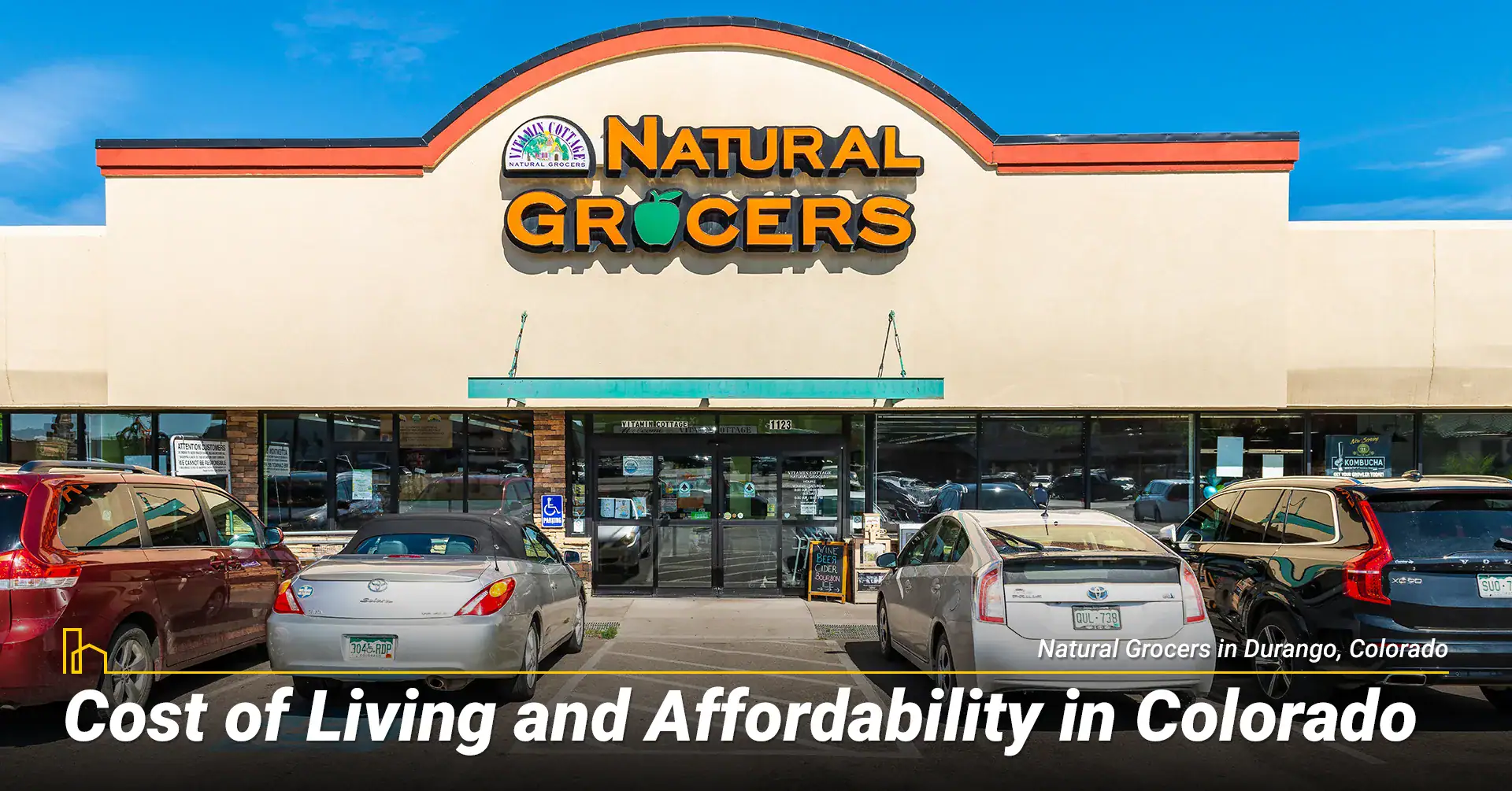
Colorado’s cost of living is about 13% higher than the national average, but it offers exceptional value considering the year-round climate, outdoor culture and lifestyle benefits. According to recent economic data, Colorado provides reasonable living costs compared to other desirable West Coast destinations like California or Washington state.
A. Colorado Housing Market Overview
Housing represents the most significant expense for Colorado newcomers, but the state offers diverse options from affordable Front Range communities to luxury mountain resort areas. The typical Colorado home value is approximately $608,100 as of mid-2025, with the market shifting toward buyers with 25.9% more inventory available and homes staying on the market an average of 31 days.
Here’s a comprehensive snapshot of housing costs across Colorado’s most popular relocation destinations:
Colorado Housing Cost Comparison
City | Median Home Price | Median Rent (2BR) | Cost of Living vs. US Avg. |
|---|---|---|---|
| Denver | $626,779 | $2,200 | 9% higher |
| Boulder | $970,000 | $2,600 | 17% higher |
| Colorado Springs | $500,000+ | $1,800 | 2% higher |
| Fort Collins | $585,000 | $1,900 | 18% higher |
| Pueblo | $228,000 | $1,400 | 7% lower |
| Grand Junction | $530,000 | $1,350 | 4% lower |
Source: Multiple Colorado housing market reports, 2025
B. Utilities and Daily Living Expenses
Colorado offers competitive utilities despite the mountain climate demands. Monthly utility expenses for a typical home, including electricity, natural gas, water and internet services, average $320- $350. Xcel Energy serves 1.6 million electricity customers statewide, though its service reliability has faced challenges, with outages doubling in 2024.
Note: Colorado maintains competitive energy costs due to abundant solar resources and efficient heating systems, though rates have increased in 2025.
C. Groceries and Transportation Costs
Colorado’s grocery costs run about 2-4% higher than national averages, while transportation remains affordable with reasonable gas prices and expanding public transit options in urban areas. The state’s continued popularity has led to increased traffic congestion and longer commutes, especially in the Denver metro area. While public transit options such as RTD Light Rail are expanding, many residents still rely on cars, contributing to rush-hour delays.
Recommended for you
3. Jobs, Economy and Career Opportunities
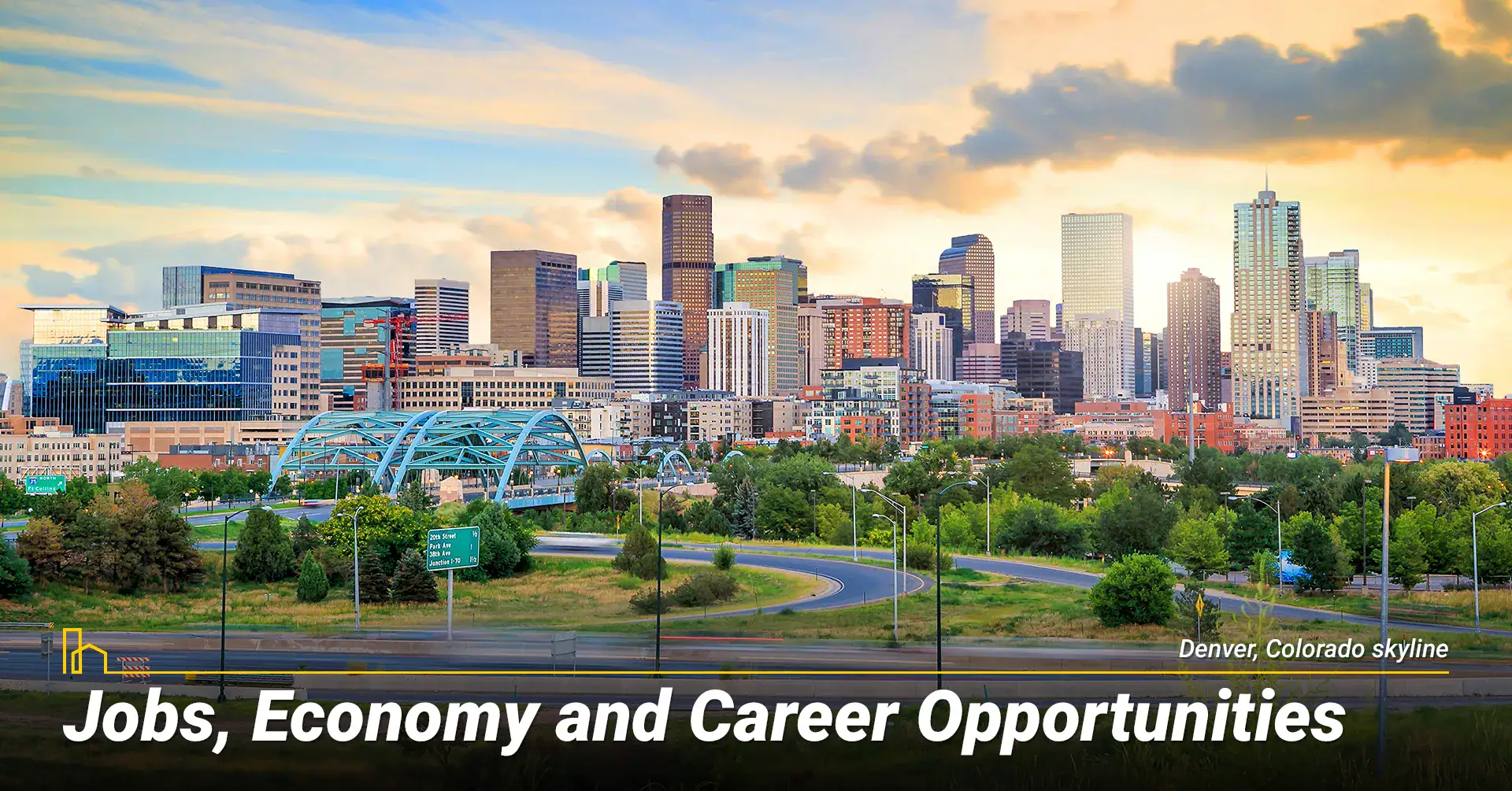
Colorado’s economy remains diverse and growing, though job growth has slowed compared to national averages. The unemployment rate currently sits at 4.8% as of May 2025, which is 0.6 percentage points above the national rate of 4.2%, representing a shift from historical patterns where the state typically maintained lower unemployment. Colorado is generally considered a good state for businesses, especially for startups and those seeking a highly educated workforce, but it faces increasing concerns regarding its regulatory environment and cost of living.
A. Major Industries and Key Employment Drivers
Colorado’s economic growth is fueled by a diverse range of industries offering strong career opportunities. Healthcare is a leading employment sector, anchored by major systems like UC Health, Presbyterian/St. Joseph and Kaiser Permanente, providing world-class medical care. The technology sector is rapidly expanding, comprising 10% of employment and 20% of the state’s GDP, with established players and innovative startups drawn to Colorado.
Manufacturing retains a significant footprint, including operations from Coors Brewing, Woodward Inc., and renewable energy manufacturers such as Vestas North America. Education provides stable employment through Colorado’s robust university system and growing K-12 school districts.
The aerospace and defense industry generates substantial annual revenue through over 150 companies, including giants like Lockheed Martin and Northrop Grumman, with a notable concentration in Colorado Springs. Tourism and hospitality also offer extensive year-round employment, capitalizing on Colorado’s world-renowned ski resorts, national parks, and vibrant outdoor recreation scene.
B. Workforce Dynamics and Geographic Economic Hubs
Colorado’s dynamic job market is diversifying into cutting-edge fields like renewable energy, biotechnology and emerging tech sectors. The state embraces remote work post-COVID, leveraging excellent internet infrastructure and a high quality of life to attract digital nomads and remote professionals. The Denver Metro area serves as the state’s primary economic engine, offering a broad spectrum of opportunities in finance, technology, healthcare and professional services. Boulder stands out as a hub for technology and innovation, while Colorado Springs is a key center for military, aerospace and tourism-related employment. Across the state, average hourly earnings are approximately $39, consistently placing Colorado’s wages above the national average.
8 Best Places to Live in Colorado
Colorado’s cities are just as varied as its landscapes, each offering distinct experiences. Some serve as energetic centers of innovation and technology, while others provide peaceful, close-knit communities that offer a welcome escape from the fast pace of modern life…
4. Education Excellence in Colorado
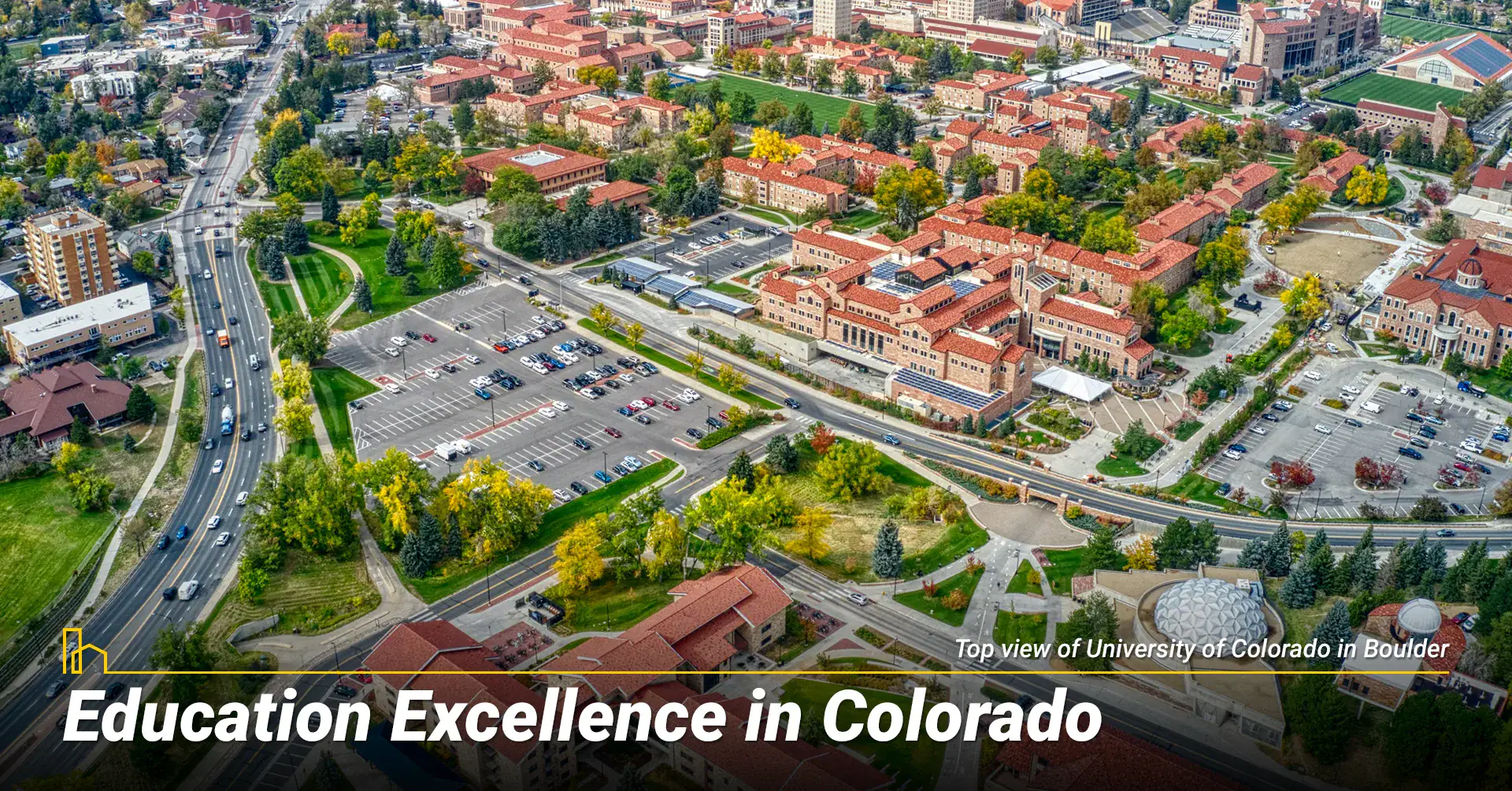
Colorado’s education system combines strong public schools with prestigious universities, creating excellent opportunities for families and students. The state serves over 900,000 students through 179 public school districts that receive comprehensive performance evaluations based on academic achievement and college readiness.
A. Public School System Performance
Many Colorado school districts consistently earn top ratings and recognition for academic achievement, innovative programs and student success. The state offers extensive school choice options, including traditional public schools, charter schools and private school choice programs.
Top-rated Colorado school districts include:
- Cheyenne Mountain School District 12 (Colorado Springs) – #1 in the state with an A+ rating
- Boulder Valley School District – strong academics and innovation with an A rating
- Academy District 20 (Colorado Springs) – diverse programs with an A rating
- Cherry Creek School District – comprehensive programs with an A rating
- Douglas County School District – excellent community support with an A rating
B. Higher Education Institutions
Colorado hosts several prestigious universities and colleges. The University of Colorado system campuses in Boulder, Denver and Colorado Springs offer world-class research and education programs. Colorado State University (CSU) in Fort Collins excels in engineering, veterinary medicine and environmental sciences.
Colorado School of Mines provides top-tier engineering and applied sciences education, while Denver University (DU) offers prestigious private education options. The state also features numerous community colleges and technical schools, which provide affordable pathways to higher education and career training.
The Pros and Cons of Living in Colorado
When considering a move to the Rocky Mountain region, many people weigh the pros and cons of living in Colorado. From breathtaking natural beauty and abundant outdoor activities to a higher cost of living and unpredictable weather, the state offers a unique mix of advantages and challenges. Whether you’re drawn to the vibrant cities or the peaceful mountain towns, it’s important to understand both sides before making the leap…
5. Colorado Tax Structure
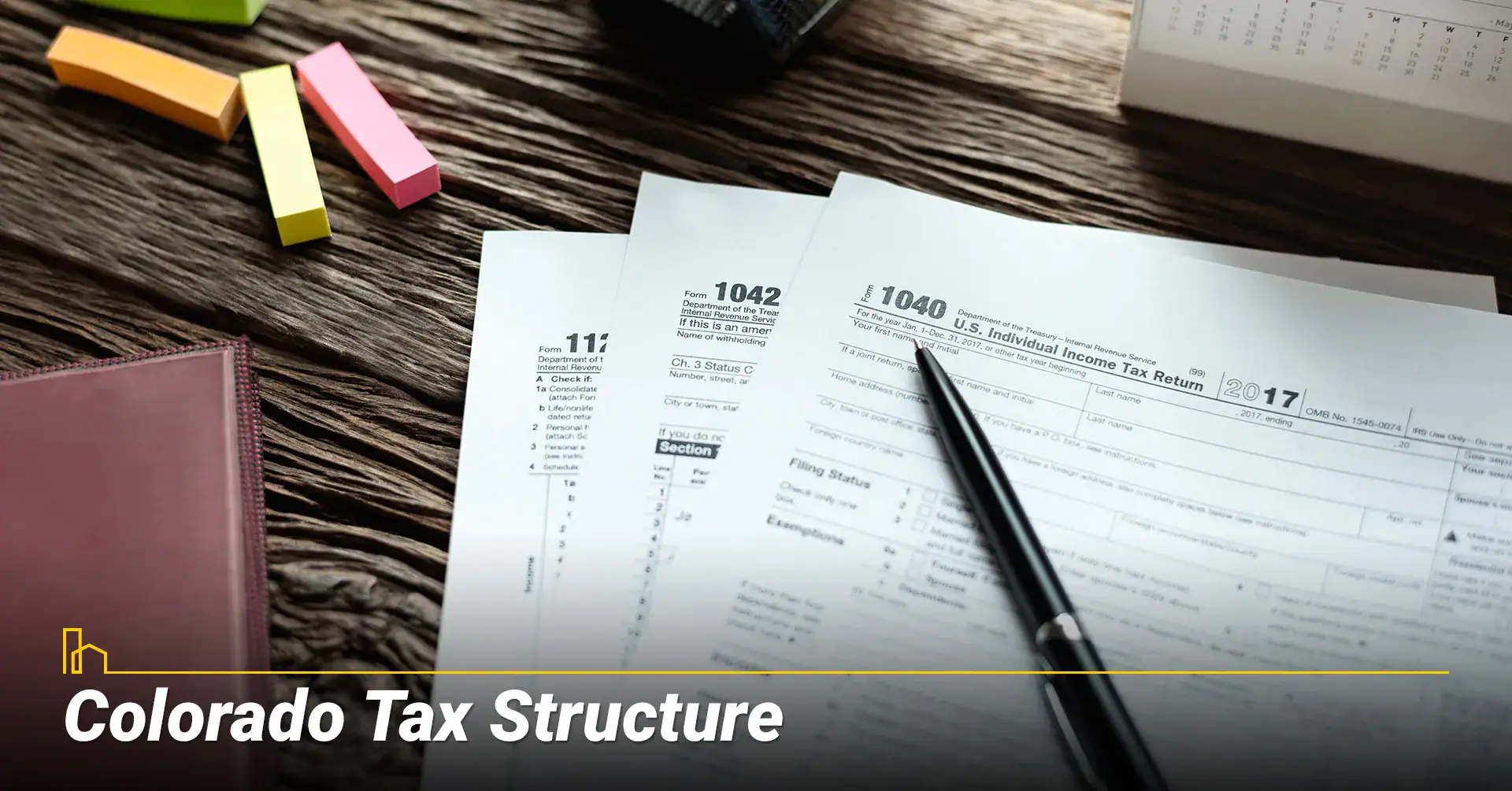
Colorado maintains a business-friendly and resident-friendly tax structure that provides significant advantages for both individuals and businesses compared to many other states.
A. State Tax Overview
Tax Type | Colorado | Florida | California | Notes |
|---|---|---|---|---|
| State Income Tax | 4.4% flat | None | Up to 13.3% | CO has a moderate burden |
| Avg. Property Tax | 0.48-0.55% | 0.80% | 0.71% | CO is competitive among these |
| Max Sales Tax | Up to 8.81% | 6-7.5% | 7.25-10.25% | Depends on locality |
Colorado’s 4.4% flat income tax rate applies to all income levels for 2025, up from the temporary 4.25% rate in 2024. While sales taxes can be higher in some areas (Denver reaches 8.81%), the state’s competitive income tax and property tax rates make it attractive for residents and businesses. Colorado offers special property tax breaks for seniors and veterans, plus favorable treatment of retirement income, including Social Security and pension distributions.
8 Important Steps to Buy Mobile Home in Colorado
Overwhelmed? There’s a lot to learn. That’s why we’ve put together this guide to buying a manufactured home in Colorado. You’ll be moving into your new home faster than the weather can change from a heatwave to a blizzard!…
6. Best Places to Live in Colorado: Comprehensive City Guide
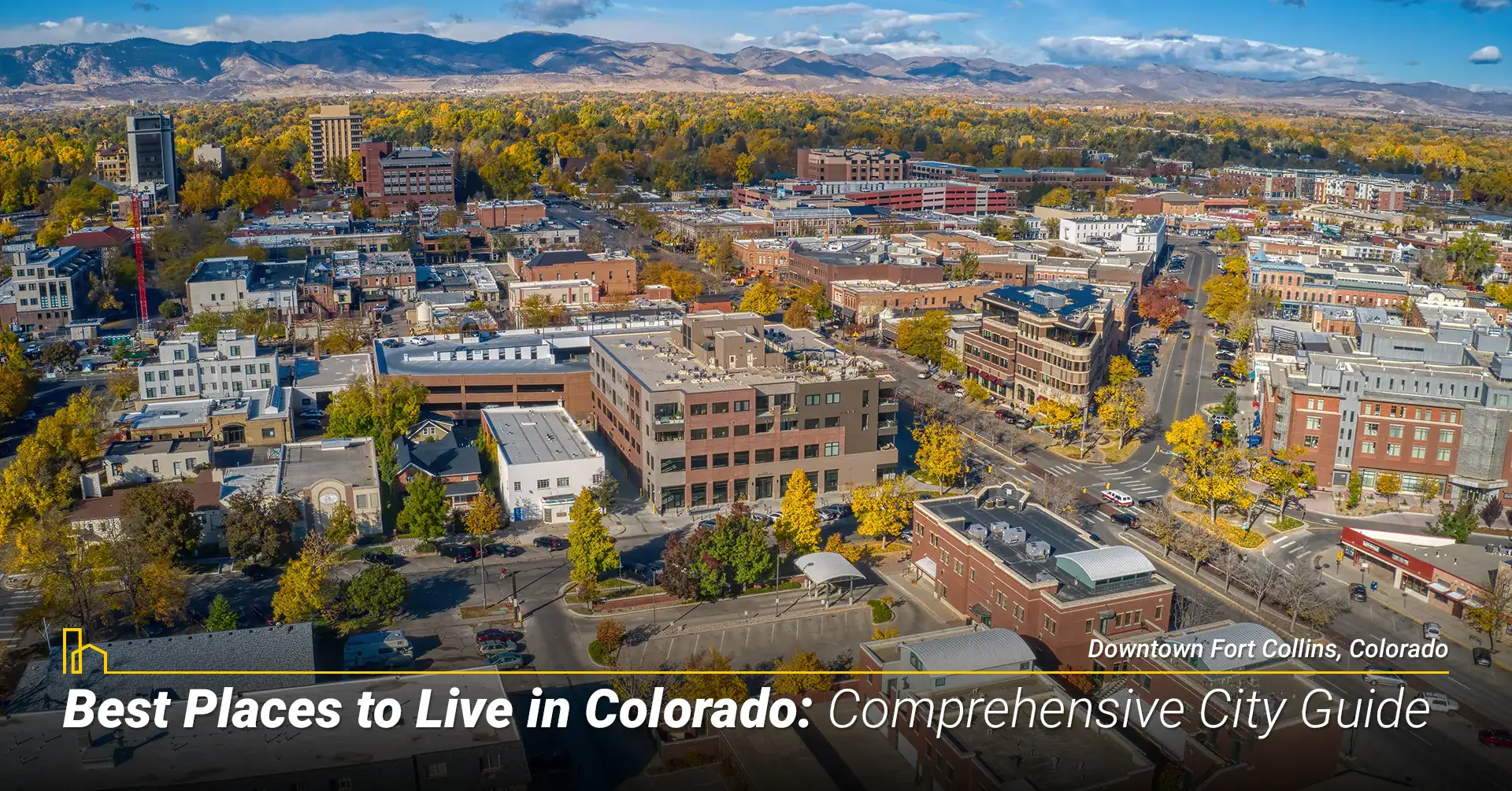
A. Denver Metro: Urban Energy and Mountain Access
Denver combines vibrant metropolitan amenities with convenient mountain access throughout the sprawling Front Range region. The nation’s 19th-largest metropolitan area offers a flourishing urban lifestyle with numerous neighborhoods catering to a range of tastes, from historic LoDo to trendy RiNo. Denver’s world-class arts and culture, sports teams, thriving culinary scene and outdoor access make it a compelling choice for those seeking lifestyle amenities along with career advancement and lifestyle amenities. Advantages include strong job markets across multiple industries, incredible cultural diversity, and excellent public and private schools. Considerations include higher housing costs in desirable neighborhoods (median $626,779), urban traffic during rush hours and typical big-city challenges.
B. Boulder: Innovation Hub and Outdoor Paradise
Boulder attracts residents with its unique combination of high-tech innovation, outdoor recreation access and educated community atmosphere. The city offers exceptional schools such as the University of Colorado Boulder (CU Boulder), a thriving startup culture, and immediate access to world-class hiking and biking trails. Advantages include a highly educated population, strong environmental consciousness, excellent schools, and proximity to both Denver and mountain recreation. Considerations include very high housing costs (median $970,000), limited parking in downtown areas and a competitive job market.
C. Colorado Springs: Military Heritage and Outdoor Adventure
Colorado Springs blends affordability with access to outdoor adventure and a growing job market, especially in aerospace and defense. Named the #1 housing market for 2025 by Realtor.com, the Springs is home to several military bases and defense contractors, as well as a budding tech sector. Advantages include housing affordability relative to the Front Range (though median now exceeds $500,000), strong military/aerospace employment with $3.1 billion economic impact, excellent outdoor recreation and family-friendly communities. Considerations include limited public transportation, a more conservative political climate and fewer nightlife options than Denver.
D. Fort Collins: College Town Charm and Craft Beer Culture
Fort Collins is a vibrant, dynamic college town anchored by Colorado State University (CSU), craft beer innovation and a strong sense of community. The city provides excellent schools, a thriving downtown and easy access to outdoor recreation. Advantages include a strong economy, excellent schools, family-friendly amenities and reasonable housing costs (median $585,000). Considerations include college town seasonal fluctuations, limited major city amenities and growing traffic congestion.
E. Mountain Towns: Luxury Living and Resort Lifestyle
Aspen, Vail, Breckenridge and Steamboat Springs represent Colorado’s premier mountain destinations with world-class skiing, luxury amenities and stunning alpine scenery. These communities attract wealthy residents and visitors seeking a sophisticated mountain lifestyle. Advantages include spectacular natural beauty, world-class recreation, luxury amenities and a prestigious reputation. Considerations include an extremely high cost of living, limited year-round employment, seasonal tourism crowds and challenging winter driving conditions.
Recommended for you
7. Planning Your Colorado Move: Step-by-Step Timeline

Timeline | Key Tasks |
|---|---|
| 8-12 weeks before moving | • Research Colorado communities and housing markets in the current buyer-friendly environment • Secure employment or confirm remote-work arrangements • Begin the home-search process (buying or renting) • Investigate school options if you have children • Start decluttering and organizing belongings |
| 6-8 weeks before moving | • Hire a moving company or reserve a rental truck • Notify current employers, schools, and service providers of your move • Transfer medical records and refill prescriptions • Review Colorado insurance requirements (home, auto, health) • Initiate official address-change notifications |
| 2-4 weeks before moving | • Confirm all moving arrangements and logistics • Pack non-essential items and seasonal gear • Arrange temporary lodging, if necessary • Review Colorado DMV steps for driver’s license and vehicle registration • Schedule utility service transfers or setups at the new address |
=> Get the Relocation Guide & Checklist PDF — prepared for both Desktop and Mobile devices.
Settling In: Practical Essentials for New Colorado Residents
A. Utilities and Essential Services Setup
Colorado utilities are managed by reliable providers, including Xcel Energy for electricity serving 1.6 million customers throughout most of the state, Denver Water serving 1.5 million people, and internet options including Xfinity, CenturyLink and growing fiber providers. Contact utility companies at least two weeks before your move to ensure service activation. Note that Xcel is implementing Time-of-Use rates beginning October 2025.
B. Legal Requirements and Official Documentation
Colorado requires new residents to obtain driver’s licenses within 30 days of establishing residency and register vehicles within 90 days (reduced to 30 days if employed in Colorado). All DMV visits now require appointments, and Real ID compliance became mandatory for TSA on May 7, 2025. Update addresses with banks, insurance companies and all service providers immediately upon arrival.
C. Community Integration and Building Social Networks
Coloradans are genuinely friendly and welcoming to newcomers who show interest in outdoor living and community involvement. Join local hiking clubs, volunteer for environmental organizations, attend neighborhood events and meetups, and participate in seasonal festivals to build lasting friendships and quickly feel at home in Colorado’s diverse communities. Dog ownership will expand your connection opportunities, so if you don’t have a pup, consider at least fostering one soon after you’ve settled in.
7 Key Factors to Know About Living in Denver, Colorado
Denver has become a destination for those seeking both career advancement and an active lifestyle, offering the perfect mix of professional opportunity and outdoor access. Whether you’re relocating for work, adventure, or a change of pace, the city’s combination of urban amenities and proximity to nature makes it an attractive place to call…
9. Colorado’s Unique Rules and Requirements
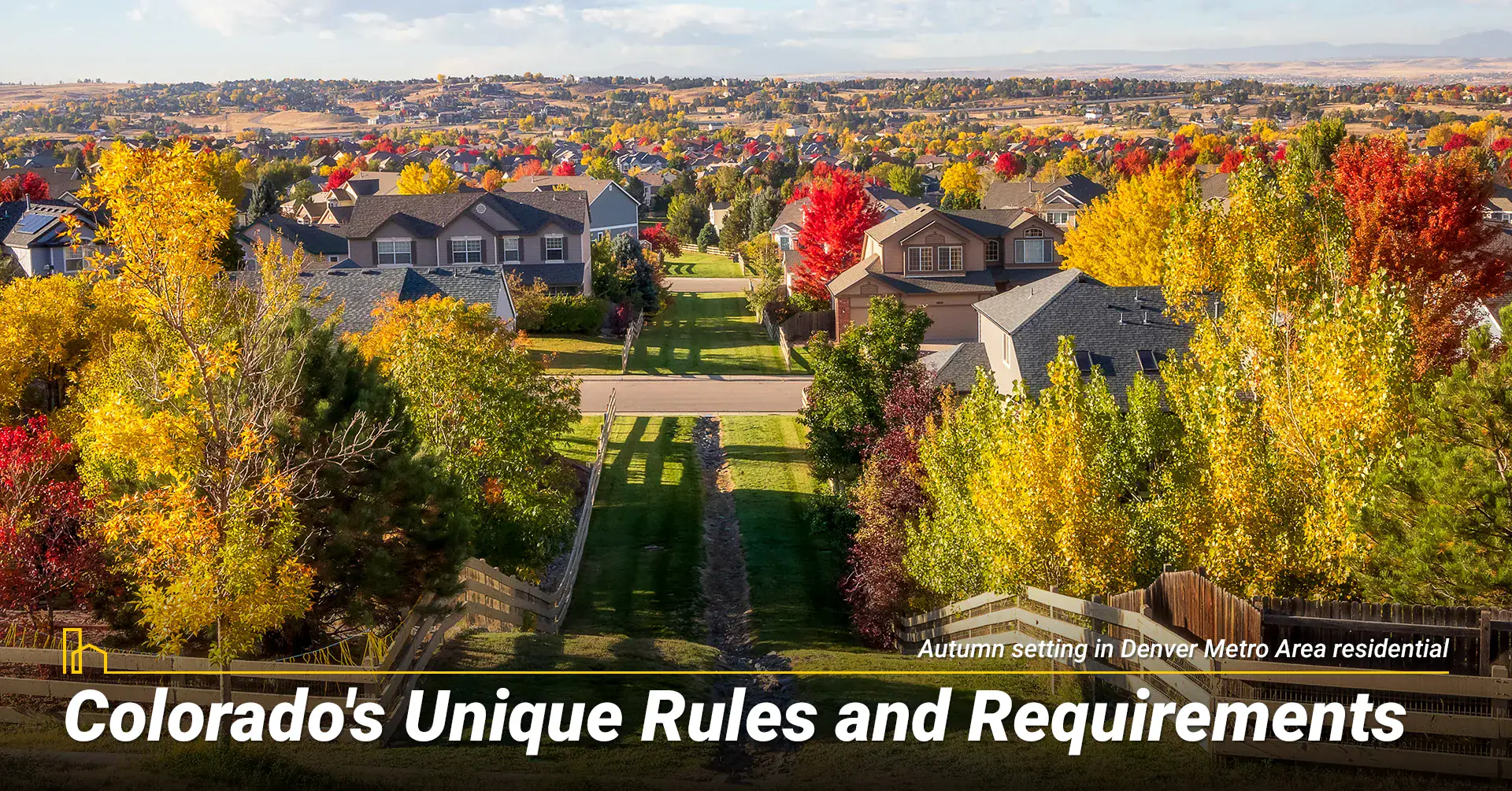
A. Vehicle Registration and Environmental Standards
Colorado requires vehicle registration within 90 days of establishing residency (30 days if employed). Most vehicles need emissions testing in certain metropolitan areas to maintain air quality standards, and winter tire or chain requirements apply to many mountain highways during winter months.
B. Residency Establishment and Documentation
You’re considered a Colorado resident after living here for more than 183 days annually. You can establish residency sooner by renting or purchasing property, obtaining Colorado employment, registering to vote or enrolling children in Colorado schools. Keep documentation of your residency establishment date.
C. Mountain Living and Outdoor Safety
Colorado’s diverse terrain and elevation changes require specific safety considerations, including altitude awareness when visiting high-elevation areas, wildlife safety in mountain communities, and winter driving preparation (winter tire or chain requirements) for mountain travel. Flash flood awareness is essential in desert areas during summer thunderstorms. New 2025 laws include hands-free driving requirements with $75 fines.
The Pros and Cons of Living in Denver, Colorado
The Pros and Cons of living in Denver, CO include access to top public schools, world-class ski resorts, and a vibrant urban lifestyle. With opportunities for outdoor adventure, strong job growth, and diverse neighborhoods, Denver appeals to professionals, families, and retirees — though rising housing costs can be a challenge to consider.
10. Financial Planning and Budget Adjustment
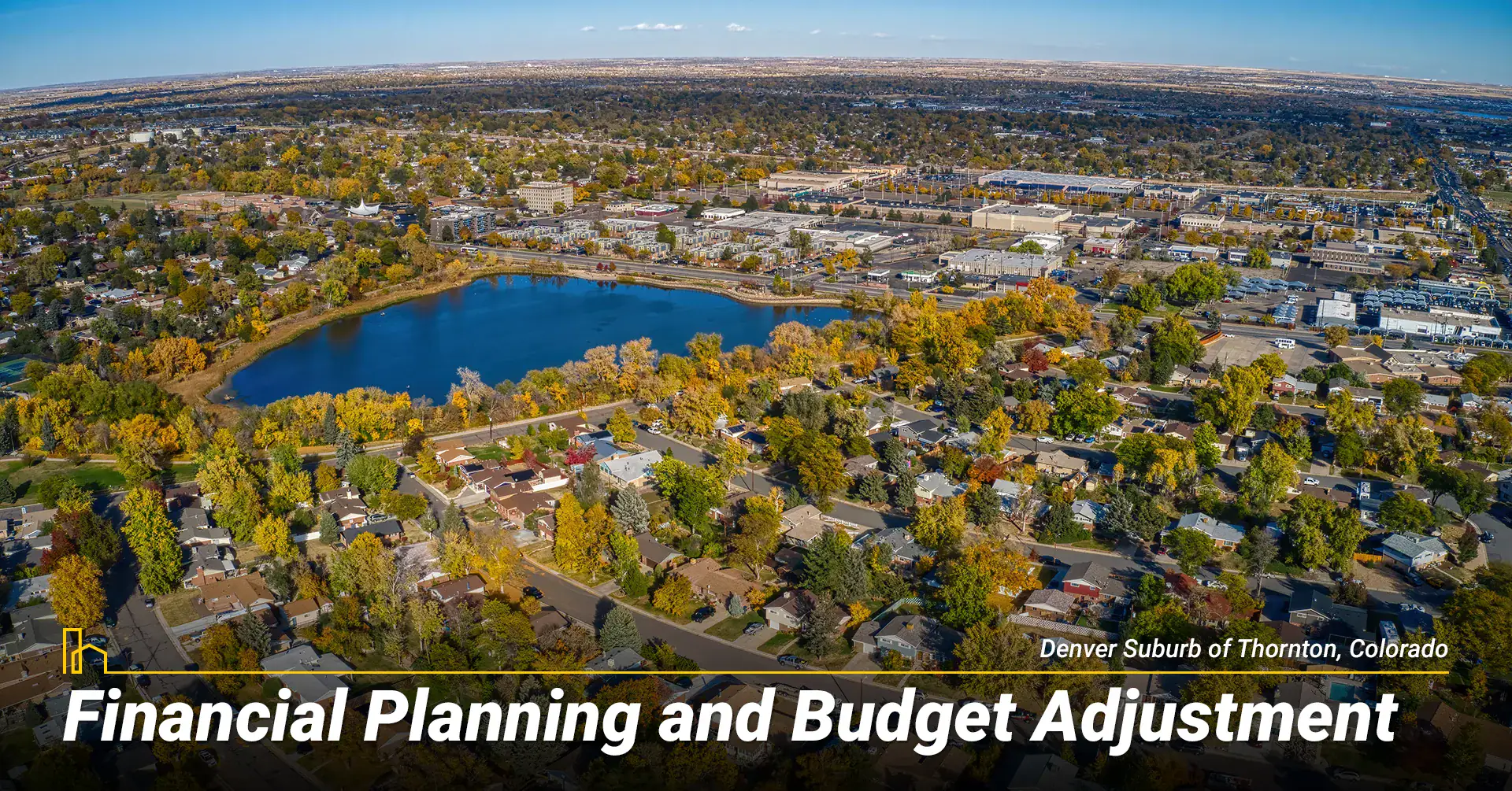
Colorado living costs run about 13% higher than national averages but offer exceptional value considering year-round climate benefits and outdoor recreation access. Housing represents the largest expense, while utilities and transportation remain manageable throughout the state.
Creating a Colorado-Adjusted Budget
Category | Colorado vs. National Average | Monthly Budget Tips |
|---|---|---|
| Housing | 14% higher | Budget 30-40% of income |
| Utilities | Variable | $320-380/month typical |
| Groceries | 2% higher | $400-500/person/month |
| Transportation | 4% lower | Include winter tires/chains |
| Recreation | Variable | Budget for ski passes/outdoor gear |
Insider Tips from a Colorado Local
Embrace the elevation: Colorado’s high altitude affects everyone differently. Stay hydrated, wear sunscreen year-round, and take time to adjust to the thinner air, especially during outdoor activities.
Prepare for weather extremes: Colorado weather can change rapidly. Layer clothing, keep emergency supplies in your car during winter and don’t be surprised by sudden snow in May or October.
Get involved outdoors: Join local hiking clubs, volunteer for trail maintenance or participate in community outdoor events to make friends and experience authentic Colorado culture.
Support local: Colorado has incredible local businesses, craft breweries, restaurants and farmers markets. Supporting the local economy helps maintain the unique character that makes Colorado special.
Learn mountain etiquette: Respect wildlife, follow Leave No Trace principles and be courteous to other outdoor enthusiasts. Colorado’s natural beauty depends on everyone’s stewardship.
Summary: Your Colorado Adventure Awaits
Ready to move to the Centennial State? Colorado offers an exceptional combination of natural beauty, economic opportunity, and quality of life. From world-class universities and diverse job markets to stunning landscapes and vibrant cities, Colorado provides opportunities for everyone. We can’t wait to welcome you home.
Recommended for you
Frequently Asked Questions about Living in Colorado
1. Do I Need a Car in Colorado?
Yes, personal vehicles are essential for most Colorado living, especially outside Denver’s RTD light rail system. Mountain towns and suburban areas require cars for daily transportation and outdoor recreation access. RTD is planning service increases for 2025.
2. How Safe Is Colorado Compared to Other States?
Colorado is generally safe, especially in suburban and mountain communities. Urban neighborhoods vary by area, so research specific locations before choosing where to live.
3. What Are the Biggest Challenges for Colorado Newcomers?
Adjusting to high altitude, understanding mountain weather patterns, navigating higher housing costs and adapting to an outdoor-focused culture can be challenging initially. Most newcomers adapt quickly and love Colorado life.
4. How Much Money Should I Budget for Moving to Colorado?
Plan $2,000-$15,000-plus for professional moving costs depending on distance and services. Budget for security deposits, utility setup and emergency funds for unexpected expenses.
5. Is Colorado Really as Outdoor Focused as People Say?
Absolutely! Colorado communities are built around outdoor access, schools emphasize environmental education, and year-round recreation is a core part of the state’s culture and identity.
6. What’s the Weather Really Like in Colorado?
Colorado winters can be cold and snowy, but most heavy snow stays at higher elevations. Summers are typically warm and dry but have steadily been getting hotter over the years. Dramatic seasonal changes are common, sometimes over the course of a day. Denver enjoys 252 sunny days each year, which varies at different elevations.
7. What Steps Must I Take After Moving to Colorado?
Obtain a Colorado driver’s license within 30 days, register your vehicle within 90 days (30 if employed), update your address with all providers and register to vote. Establish local bank accounts and insurance policies.
8. What Are the Pros and Cons of Colorado’s Tax Structure?
Colorado’s flat 4.4% income tax and competitive property taxes are attractive, though sales taxes can be higher. The state offers excellent benefits for retirees and military members.
9. Do Coloradans Really Love Their Sports Teams?
Yes! Colorado is known as “Broncos Country,” and residents staunchly support the Broncos, Avs, Nuggets, Rockies and Rapids. We recently welcomed two women’s professional sports teams: the Denver Onyx (rugby) and an NWSL (soccer) franchise. There’s also a strong college sports following and extensive youth sports programs.
10 Important Things You Should Prepare for Long-Distance Moving
Moving long distances can be exciting, like an adventure of a lifetime. There is nothing as interesting and energizing as trying out new things and having the opportunity for a fresh start. But let’s be honest: moving is more complex than getting into a car or a bus and leaving for a new place…
Local Editor(s)
Moving to Colorado: THE Complete Relocation Guide and Checklist
There’s no place quite like Colorado. With its sky-high mountains, booming economy, and friendly culture, the Centennial State is one I’m proud to call home—and I hope you will, too.…
The Pros and Cons of Living in Colorado
More than half of Colorado residents are transplants. If you do relocate to the Centennial State, don’t be surprised when the “natives” give you a hard time. Whether you settle…
10 Most Affordable Places to Live in Colorado
Colorado, the Centennial State, has long been a magnet for adventurers, nature lovers, and those who simply want to enjoy its breathtaking landscapes. But along with its allure comes a…
The Pros and Cons of Living in Denver, Colorado
Looking for stellar public schools, world-class ski resorts, and a thriving city all in one spot? Denver, Colorado, may be the place for you. The Mile High City offers a…
8 Best Places to Live in Colorado
With its majestic mountain ranges, over 300 days of sunshine, and a lifestyle that seamlessly blends outdoor adventure with urban energy, Colorado stands out as a truly unique destination. Living…
7 Key Factors to Know About Living in Denver, Colorado
Denver is a city of contrast, where rapid growth meets deep-rooted history. With more than 716,000 people calling it home in 2023, the city has grown by 19% over the…
8 Important Steps to Buy Mobile Home in Colorado
Looking to buy a manufactured home in Colorado? Get started by having a few conversations with other owners. Consider whether your priorities make a mobile home a good choice, find…
10 Most Affordable (Safe) Places to Live in the U.S. [Updated]
As the halfway mark of the year comes to a close, many begin to plan their future for the remaining months and beyond. If one of these ideas has been…
8 Best Places to Live in Colorado
With its majestic mountain ranges, over 300 days of sunshine, and a lifestyle that seamlessly blends outdoor adventure with urban energy, Colorado stands out as a truly unique destination. Living here means waking up to breathtaking vistas—whether it's the towering…


 Verified
Verified









